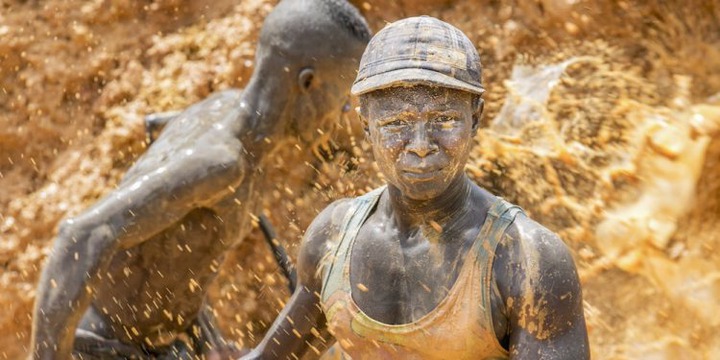The Ministry of Energy and Green Transition has raised serious concerns about the impact of illegal mining—commonly referred to as galamsey—on Ghana’s ambition to achieve net-zero emissions and shift from fossil fuels to green energy.
According to the Ministry, while Ghana has made notable progress in implementing its Energy Transition Framework, the persistent environmental degradation caused by galamsey activities poses a significant threat to these efforts.
Speaking at a stakeholder engagement on the Energy Transition Framework held on Wednesday, May 21, in Accra, Dr. Robert Sogbadji, Deputy Director for Renewables and Green Emerging Technologies at the Ministry, emphasised the urgent need to curb illegal mining to protect ongoing renewable energy projects.
He noted that a range of initiatives reflect Ghana’s commitment to a sustainable energy future, but warned that galamsey could derail much of the progress being made.
“For mini-hydro, you have to conduct a feasibility test to assess the capacity before developing a project. But because of the illegal mining that goes on in river bodies, we now have to carry out re-feasibility studies to determine whether those rivers are still viable for such projects,” Dr. Sogbadji explained.
“Our energy transition plans rely on technologies like mini-hydro and solar to produce green energy. If illegal mining is not addressed, these projects will be severely hindered.”
Illegal mining remains a persistent national challenge. Under the previous administration, military-led task forces such as Operation Vanguard and Operation Halt were deployed to clamp down on galamsey operations, but results have been limited.
The current John Mahama-led administration has introduced a new initiative known as the Blue Water Guard, a surveillance and whistleblower task force aimed at supporting enforcement efforts against illegal mining.
As part of this initiative, on May 21, the Minerals Commission began deploying 453 Blue Water Guards across seven Metropolitan, Municipal, and District Assemblies (MMDAs) in the Western Region. These personnel are the first batch of a planned 2,000-member force, all of whom completed their training under the Ghana Navy on April 14, 2025.
The Blue Water Guards will now operate in close collaboration with both the Navy and the Ghana Police Service as part of a broader national strategy to combat illegal mining and protect Ghana’s natural resources.
